At the RT Book Convention, I attended a session with a rather lengthy title—Staying in Your Lane or Getting Out of It: How to Navigate Writing About People Who Aren’t Like You. As you can gather, it was all about the official It topic in YA—diversity and who is allowed—and obligated—to see that it is improved.
Everyone pretty much agreed that there isn’t enough diversity in YA literature and that something should be done about it. But it’s just not clear what that should be exactly. Most writers of YA are white, straight, middle class, etc. Should these writers start writing outside their experience? That isn’t seen as a good solution because it’s hard for them to make those other voices authentic, which does a disservice to the people who are not being represented accurately as well all the other readers who aren’t seeing an accurate experience of The Other.
Obviously we need more writers who aren’t privileged white people. An interesting question came up: should those of us who do fit that mold stand aside to make “more room” for diverse writers? I feel like this misses the point a little—I don’t believe it’s a zero sum game. It’s not like there is a specific and finite number of possible readers. More teens would read for fun if they saw themselves represented in the literature. It’s really on the publishing industry to give diversity more than lip service. A great suggestion was also made as one of the best ways that all us privileged writers can help: we should help to promote all diverse books. Seek them out, recommend them, review them, blurb them, and so on. Everyone should do this.
Another suggestion is simply to make the world of a book more diverse by putting some characters of color/different sexuality/etc. in there. Like the barista at the coffee shop, or the guy driving by in the Toyota, or classmates. The point was that it should be specifically called out. I think a lot of white authors are afraid to make background and secondary characters specifically one race or another, but the point was that it’s better than just picturing it in your head and letting readers miss it.
I also want to address the idea that someone like me shouldn’t try to write about someone not like me. I think this is silly. If we really believed that an author can only write what they know, we wouldn’t have the majority of modern literature. No historical. No fantasy, no sci-fi, no paranormal. Why are the expectations so different for contemporary? One of the important traits of a writer is definitely creativity, but another is the ability to put yourself in someone else’s shoes and imagine what it’s really, truly like. Because all good literature is about the emotional experiences of the characters, and that requires knowing them deeply.
I think too much emphasis is put on presupposed group experience. As if a handful of shared categories guarantees a single shared experience. For instance, I truly believe that I have more in common with a black middle-class girl from the south-central US who attended a state college and has dealt on and off with mental health challenges than a white girl born and bred in New York who attended Brown and is an eternal optimist. Of course our experiences would not have been the same, but in this scenario I really believe race is less important than the sum of the other characteristics. I also think I could do a decent job of writing a lesbian growing up in the middle of the country, because although I’m straight, in Oklahoma people (very) frequently think I’m a man and when they figure out I’m not, many assume I’m a lesbian. So I have some clue how they’re treated.
I’m not saying that white, straight people don’t have privilege—we absolutely do. But we are also individuals with different experiences and have the capability of listening to and learning from others. One of the examples that came up at the panel was that a lot of books about fat girls have been written—and many of those books don’t ring true for us actual fat girls, because they were written by skinny women.
But I don’t think that’s why—I think it’s because they were written by uninformed skinny women. I have been really fat all my life and suffered for it, but I don’t think that it’s impossible for someone who hasn’t experienced it to understand what it’s like. Similarly, people who have never suffered from depression often don’t get it. But again, it’s not impossible. In both cases, it just takes some effort and a real commitment to understanding. Normal people don’t bother with this—but good writers do.
So I don’t think it’s true that a white woman can never write a major character of color authentically. She can’t do it alone, though. A good mix of beta readers, friends who’ve had similar experiences to the character, and loads of research is necessary.
A couple of interesting sites related to this topic that came up in the panel:
http://www.inourownvoices.org
http://writeinthemargins.org
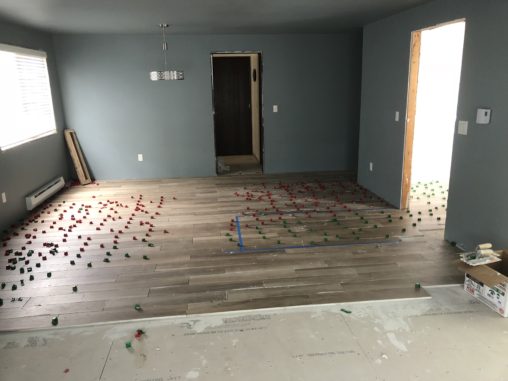

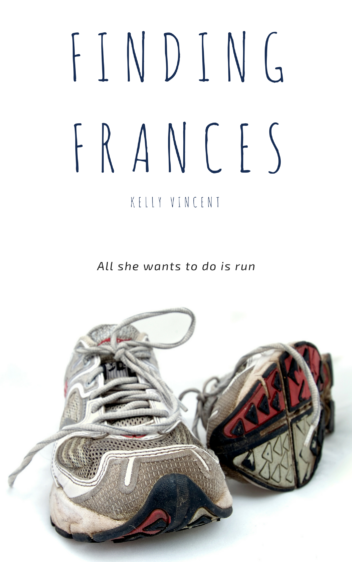


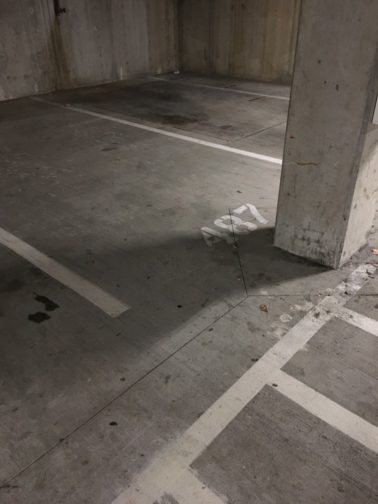
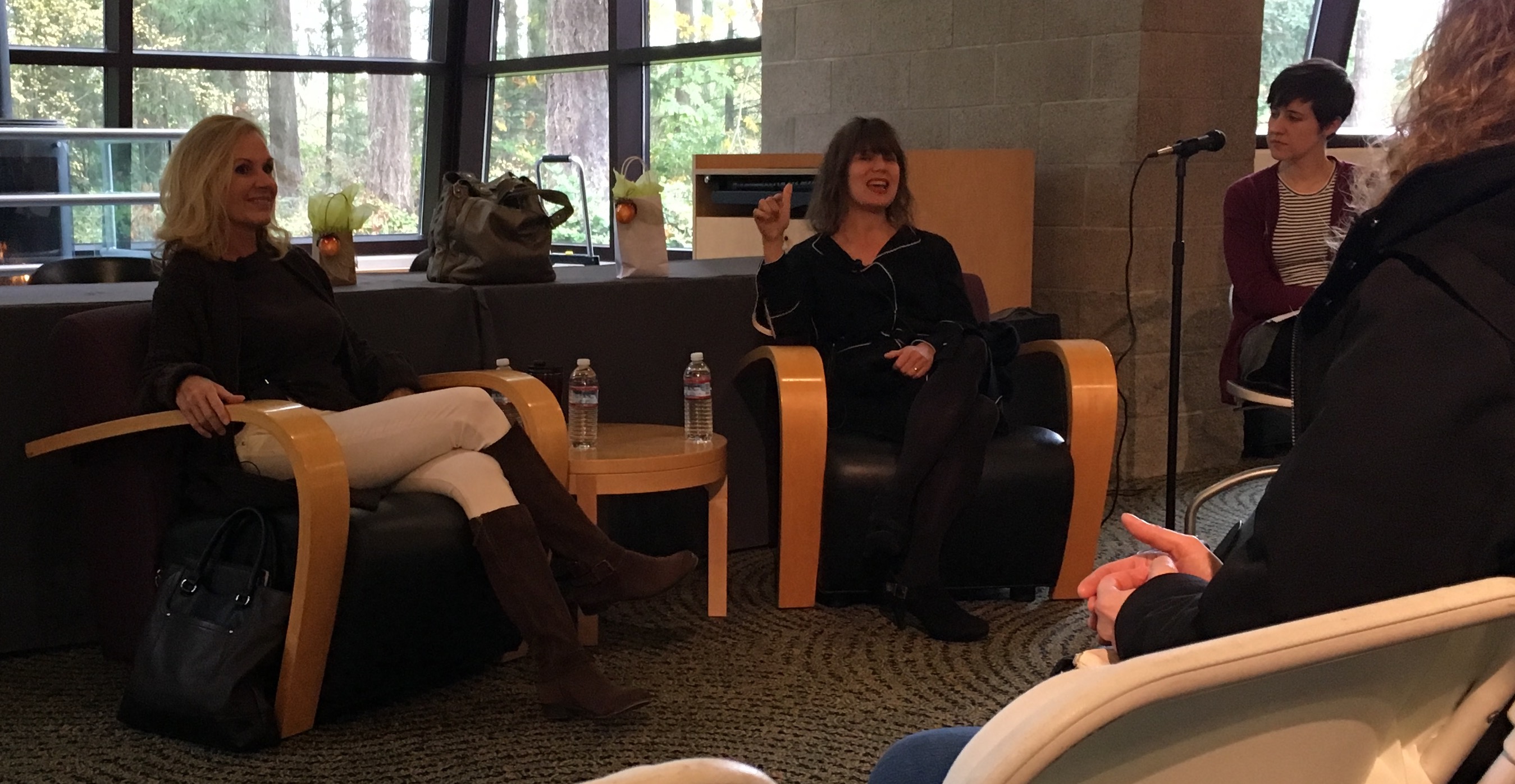
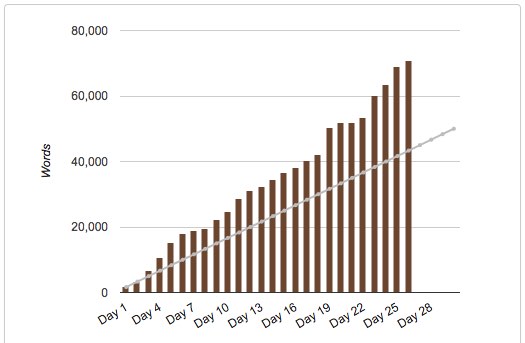
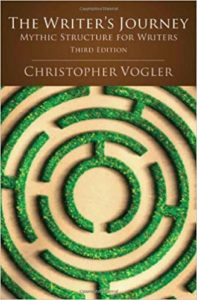 On Thursday I did a master class with Christopher Vogler, who interpreted Joseph Campbell’s anthropological studies of mythology and stories into a pseudo-formula for writers many years ago. It eventually came out as a book called The Writers Journey: Mythic Structure for Writers, which provides a solid structure framework called the Hero’s Journey, which writers can use to construct a satisfying story. There’s some controversy about the true universality of this story structure (some feminists claim it only applies to men’s stories, for instance). My opinion is that while it is not the only possible good story structure, it can be a useful guide for almost any story. But there are definitely other story structures out there. Regardless, his class was good—Vogler’s a good speaker and he’s very emotionally involved in stories and his work with them, which really draws in the audience.
On Thursday I did a master class with Christopher Vogler, who interpreted Joseph Campbell’s anthropological studies of mythology and stories into a pseudo-formula for writers many years ago. It eventually came out as a book called The Writers Journey: Mythic Structure for Writers, which provides a solid structure framework called the Hero’s Journey, which writers can use to construct a satisfying story. There’s some controversy about the true universality of this story structure (some feminists claim it only applies to men’s stories, for instance). My opinion is that while it is not the only possible good story structure, it can be a useful guide for almost any story. But there are definitely other story structures out there. Regardless, his class was good—Vogler’s a good speaker and he’s very emotionally involved in stories and his work with them, which really draws in the audience.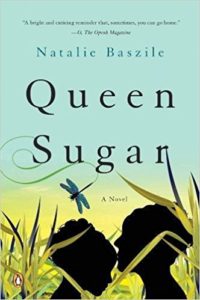 Thursday night, the keynote speaker was Natalie Baszile, author of Queen Sugar. I admit I hadn’t heard of this book, though I’ve bought it and intend to read it because it sounds good. Oprah even picked it up and made a TV show out of it, which is apparently quite good. I know a lot of people snootily look down on Oprah, but I think she generally has good taste in books. Anyway, Natalie’s talk was all about her journey to publication, which was… long. She peppered the speech with family stories, some of which were funny (the box of Louisiana delicacies that were shipped every year, only to arrive as a box of rotting meat) and some of which weren’t (her father growing up in Louisiana and experiencing the small-town embedded racism there).
Thursday night, the keynote speaker was Natalie Baszile, author of Queen Sugar. I admit I hadn’t heard of this book, though I’ve bought it and intend to read it because it sounds good. Oprah even picked it up and made a TV show out of it, which is apparently quite good. I know a lot of people snootily look down on Oprah, but I think she generally has good taste in books. Anyway, Natalie’s talk was all about her journey to publication, which was… long. She peppered the speech with family stories, some of which were funny (the box of Louisiana delicacies that were shipped every year, only to arrive as a box of rotting meat) and some of which weren’t (her father growing up in Louisiana and experiencing the small-town embedded racism there).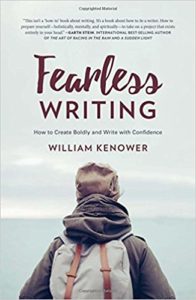 On Saturday, I went to several different sessions, mostly about craft. One was on hooks and how important they are, especially at the end of scenes and chapters. I went to a session about writing nonfiction for kids, something I’ve thought about dipping my toes into. I went to another session on writing diversity, which had a bunch of great tips. Sunday I went to a session called Fearless Marketing, with Bill Kenower,
On Saturday, I went to several different sessions, mostly about craft. One was on hooks and how important they are, especially at the end of scenes and chapters. I went to a session about writing nonfiction for kids, something I’ve thought about dipping my toes into. I went to another session on writing diversity, which had a bunch of great tips. Sunday I went to a session called Fearless Marketing, with Bill Kenower,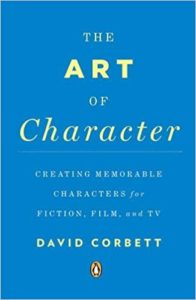 Another nice thing that happened that same day is that one of my former writing instructors offered to do a critique of a chapter or story of mine, all because I recommended a book on character that he ended up using in his summer writing class. It’s really popular with his students and he felt like he owed me a favor. I’m not sure he does, but I’ll probably take him up on that. I’ve got a short story I’m working on, which I may post here eventually. If you’re curious, the book is The Art of Character: Creating Memorable Characters for Fiction, Film, and TV by David Corbett.
Another nice thing that happened that same day is that one of my former writing instructors offered to do a critique of a chapter or story of mine, all because I recommended a book on character that he ended up using in his summer writing class. It’s really popular with his students and he felt like he owed me a favor. I’m not sure he does, but I’ll probably take him up on that. I’ve got a short story I’m working on, which I may post here eventually. If you’re curious, the book is The Art of Character: Creating Memorable Characters for Fiction, Film, and TV by David Corbett.